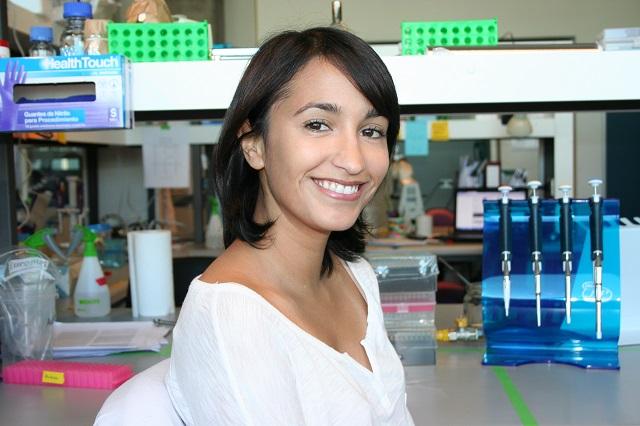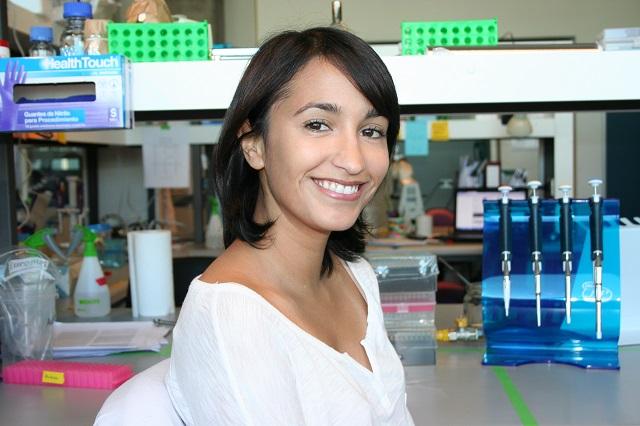
BOSTON (June 9, 2016) — Cecilia A. Silva-Valenzuela, Ph.D., has been selected as one of ten Latin American Fellows in the Biomedical Sciences by The Pew Charitable Trusts, and will receive two years of funding to pursue research in the United States. Silva-Valenzuela is a postdoctoral scholar in the department of molecular biology and microbiology at Tufts University School of Medicine.
The Pew Latin American Fellows Program, whose alumni have gone on to receive some of the highest distinctions in Latin American science, supports young scientists from Central and South America by funding two years of postdoctoral studies with distinguished mentors in the United States. Silva-Valenzuela, a native of Chile, will work in the laboratory of Andrew Camilli, Ph.D., Howard Hughes Medical Institute investigator at the Tufts University School of Medicine. He is also a member of the Molecular Microbiology program faculty at the Sackler School of Graduate Biomedical Sciences at Tufts.
The Camilli lab investigates a novel use for specialized viruses to stop the spread of cholera. These viruses, known as bacteriophages, have the ability to destroy the bacteria that causes cholera. The team aims to determine which types of these phages can effectively eliminate the cholera bacteria in water.
"The cholera bacteria cycles between living in humans and bodies of water. If we can identify which bacteriophages are most adept at destroying the cholera bacteria in contaminated water, then we may be able to effectively prevent transmission to humans and avoid future cholera outbreaks," says Silva-Valenzuela.
Silva-Valenzuela received a doctorate in biomedical sciences in 2014 from the University of Chile, where she worked with Drs. Inés Contreras and Carlos Santiviago. She also worked in the laboratory of Dr. Michael McClelland of the University of California, Irvine, during her doctoral training. Last year, she accepted a postdoctoral position with Camilli, who himself is a 1997 Pew Scholar.
Established in 1990, The Pew Latin American Fellows Program has invested in young scientists who are exploring questions fundamental to advancing human health. In addition to the two years of postdoctoral funding, a subsequent award is given to fellows who return to Latin America after their time in the U.S. and launch independent research labs. Roughly 70 percent of past fellows have taken advantage of this opportunity and are using their training in the U.S. to build much needed infrastructure for scientific exploration in Latin America.
###
About Tufts University School of Medicine and the Sackler School of Graduate Biomedical Sciences
Tufts University School of Medicine and the Sackler School of Graduate Biomedical Sciences are international leaders in medical and population health education and advanced research. Tufts University School of Medicine emphasizes rigorous fundamentals in a dynamic learning environment to educate physicians, scientists, and public health professionals to become leaders in their fields. The School of Medicine and the Sackler School are renowned for excellence in education in general medicine, the biomedical sciences, and public health, as well as for innovative research at the cellular, molecular, and population health level. The School of Medicine is affiliated with six major teaching hospitals and more than 30 health care facilities. Tufts University School of Medicine and the Sackler School undertake research that is consistently rated among the highest in the nation for its effect on the advancement of medical and prevention science.
Media Contact
Siobhan Gallagher
[email protected]
617-636-6586
@tuftspr
http://www.tufts.edu





